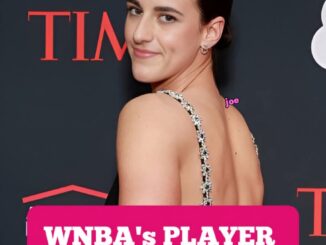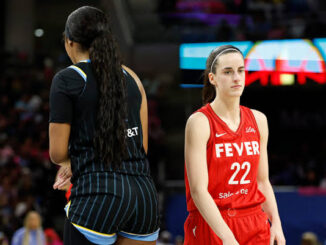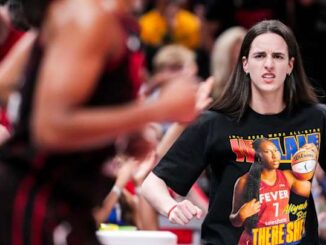
Caitlin Clark, the electrifying rookie guard for the Indiana Fever, recently offered a rare look behind the spotlight — admitting that the demands of her new professional life have left her speaking more with reporters than with her own family. At just 22 years old, Clark’s transition into the WNBA has come with immense attention, and in a postgame press conference following the Fever’s first win of the season, she spoke candidly about how overwhelming it can be.
“Honestly, I feel like I talk to the media more than I get to talk to my own family … which is really kind of sad, in a way,” Clark said. She stressed that this imbalance is not by choice but rather the consequence of her new responsibilities and the public role she must play in each game week.
Clark characterized the first stretch of her season as a “whirlwind,” noting that navigating media obligations, expectations, and public scrutiny is a lot to carry at her age. She acknowledged how difficult it can be to balance maintaining her authentic joy for the game with all the external noise and criticism.
To cope with the pressure, Clark shared that distancing herself from social media has been one of the healthier choices she’s adopted. She emphasized that while she loves basketball and never wants to lose the joy in her craft, the off-court attention can sometimes feel like a burden.
Clark’s teammate Aliyah Boston echoed some of those difficulties, drawing attention to how “armchair coaches” and critics — people who have never been on the floor themselves — often weigh in on performance from the outside. Boston said she has sought refuge in her faith and intentionally tries to “log off” from social media to protect her mental space.
The heightened scrutiny isn’t entirely new for Clark — during her storied college career at Iowa, she was already under intense media focus. But now, the stakes are higher: as a WNBA rookie, she’s expected to serve as both a role model and a marketing engine for the league. She has been credited with helping drive viewership and renewed interest in women’s basketball.
Clark’s admission sheds light on an often-overlooked side of professional sports: that the visibility which brings success can also carry personal costs. It highlights the emotional tension between the demands of public life and the private connections that sustain us. While she may speak more with reporters than with family these days, her honesty is a reminder that athletes are human — navigating pressure, boundary, and balance just like anyone else.



Be the first to comment